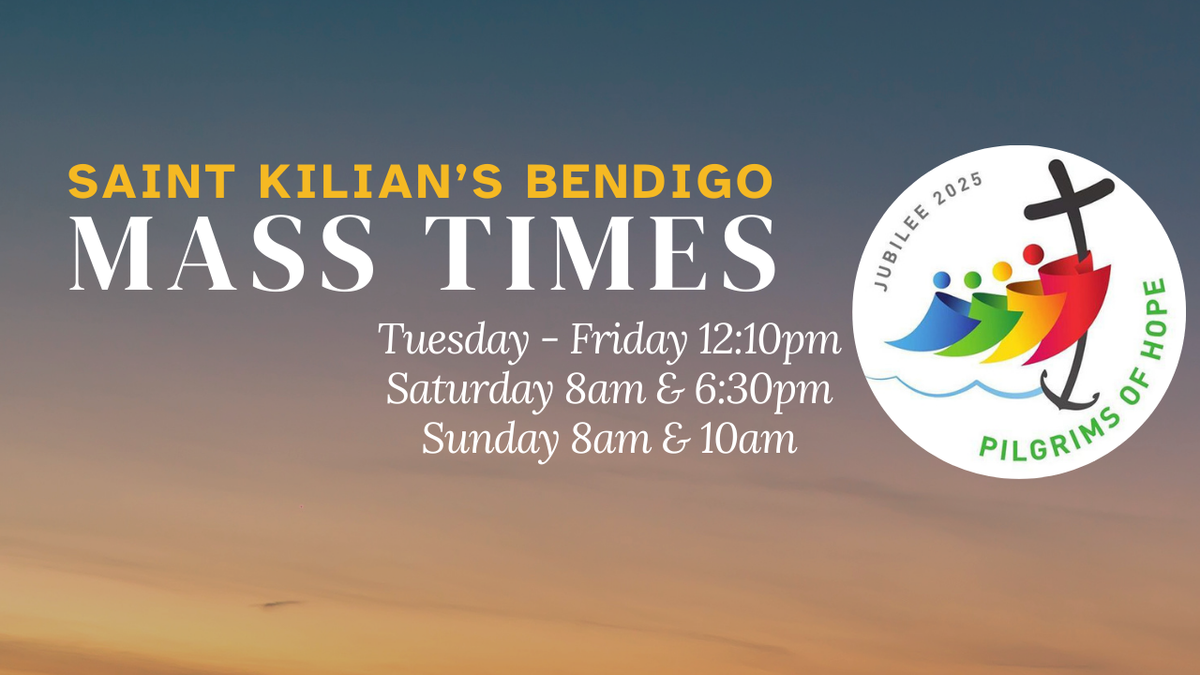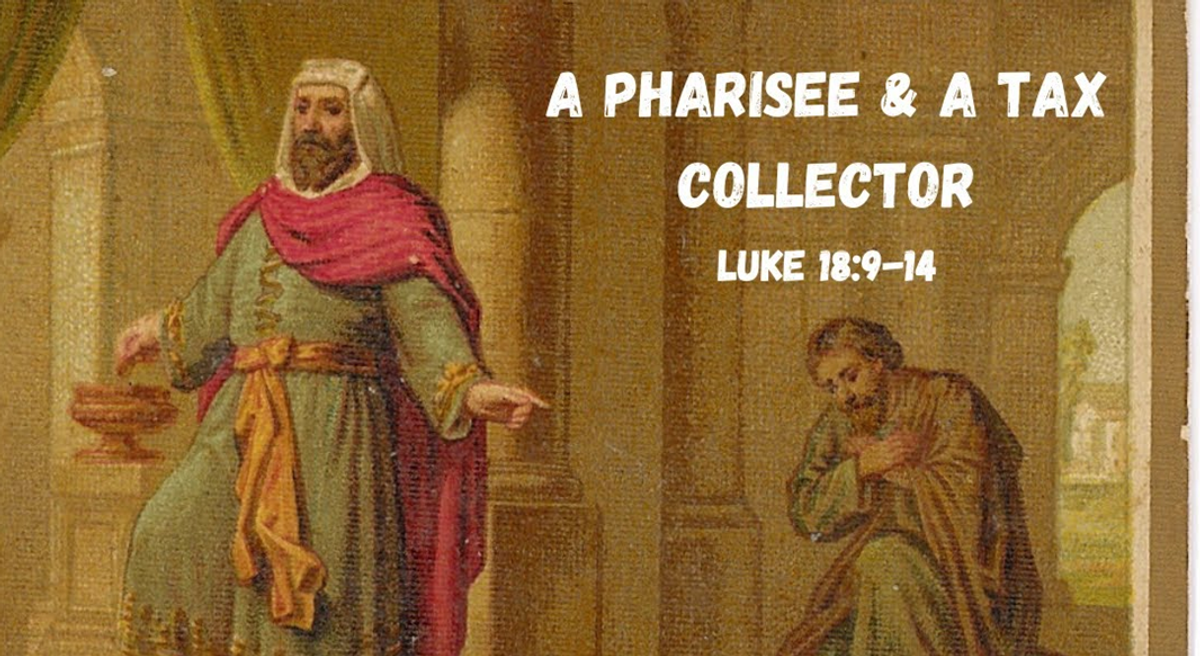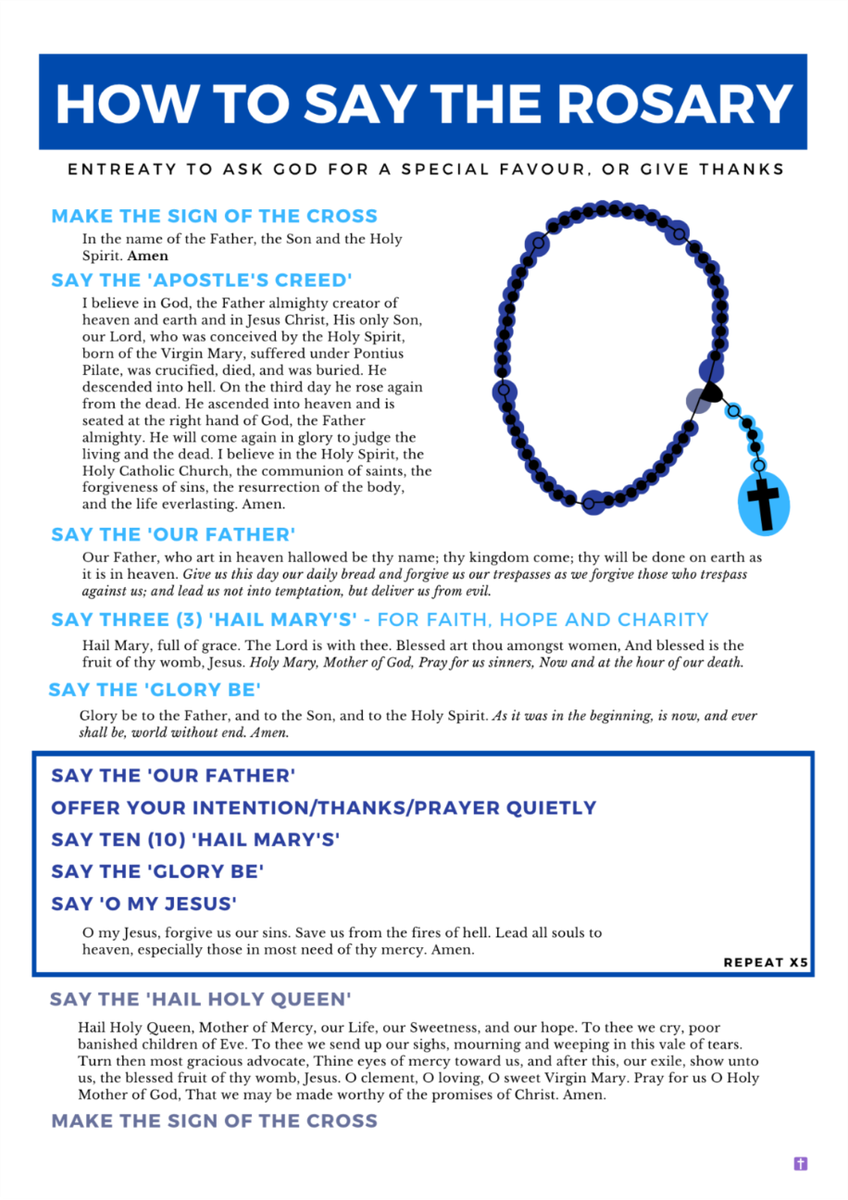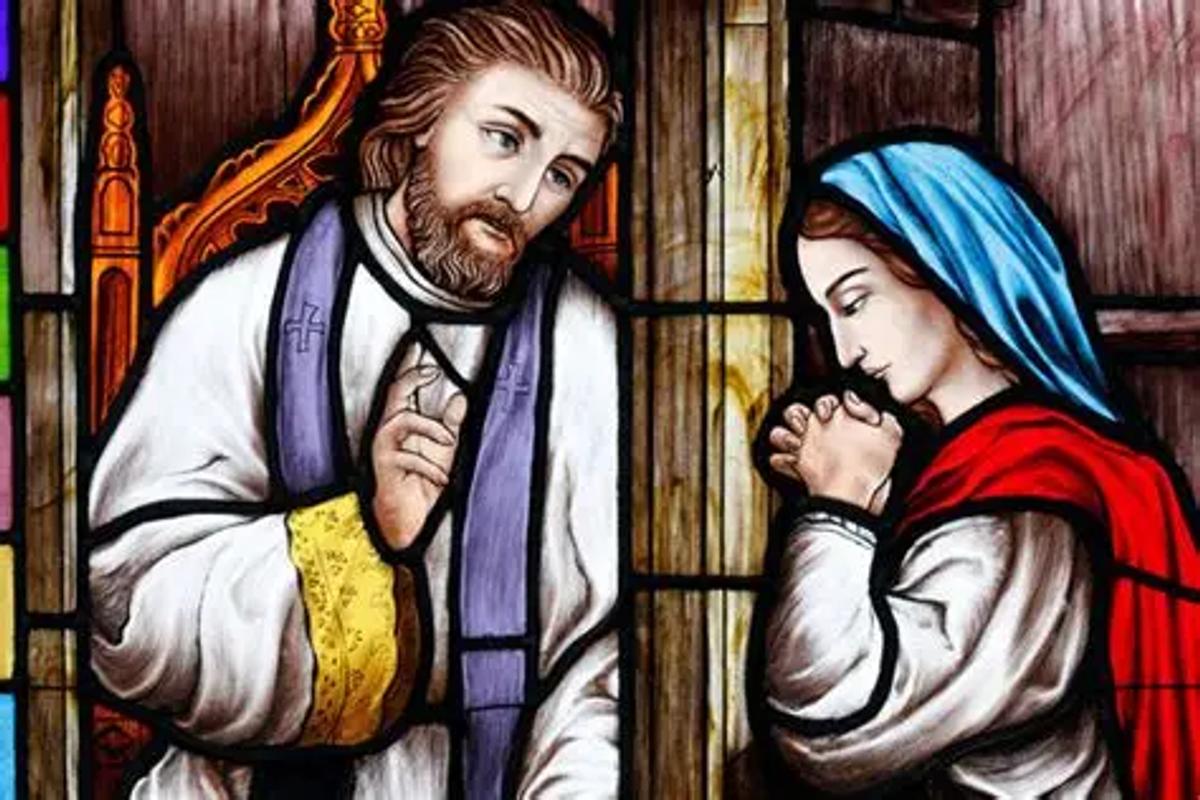Catholic Identity

Gospel Reflection
30th Sunday in Ordinary Time
Summary
In this parable, Jesus tells a story about two men who went to the temple to pray. The Pharisee (a religious leader) boasted about all the good things he did and looked down on others. The tax collector, considered a sinner, humbly asked God for mercy. Jesus says it was the humble tax collector—not the proud Pharisee—who went home right with God. The lesson is that God values humility over pride and self-righteousness.
Scripture - Luke 18:9–14
Jesus also told this parable to some who trusted in themselves that they were righteous and regarded others with contempt: “Two men went up to the temple to pray, one a Pharisee and the other a tax collector. The Pharisee, standing by himself, was praying thus, ‘God, I thank you that I am not like other people: thieves, rogues, adulterers, or even like this tax collector. I fast twice a week; I give a tenth of all my income.’ But the tax collector, standing far off, would not even look up to heaven, but was beating his breast and saying, ‘God, be merciful to me, a sinner!’ I tell you; this man went down to his home justified rather than the other; for all who exalt themselves will be humbled, but all who humble themselves will be exalted.”
Reflection
This parable goes straight to the heart of how we see ourselves and others. The Pharisee believed he was already “good enough” for God. He measured his worth by his religious practices and looked down on others who didn’t measure up. The tax collector, by contrast, saw his need for God and admitted his failings.
Jesus is warning us that pride—even spiritual pride—can quietly creep into our lives. It’s easy to slip into the Pharisee’s shoes without realising it.
- In prayer: Do I use prayer as a way to genuinely open my heart to God, or as a way to reassure myself that I’m “doing better than others”? For example, when I thank God, am I truly grateful—or am I secretly boasting?
- In relationships: Do I quietly judge the choices, parenting, work ethic, or faith of others, while excusing my own shortcomings? How often do I compare myself instead of showing compassion?
- In leadership or influence: When I serve others—at work, at school, in my family—do I do it to be seen and praised, or to sincerely uplift others? Do I make space for their gifts, or do I subtly centre myself?
In everyday humility: Like the tax collector, am I willing to say, “I was wrong. I need forgiveness”? Or do I avoid admitting mistakes because I fear it will make me look weak?
The truth is, God doesn’t need our performance; He desires our humility. He meets us most fully not when we are trying to look impressive, but when we are honest, vulnerable, and ready to be changed.
The Pharisee left the temple looking polished but empty. The tax collector left the temple broken but healed. Which one do you want be?
- Do I sometimes compare myself to others and think I’m “better” than them?
- When I pray, do I talk more about myself—or do I open my heart honestly to God?
- What does humility look like in my daily life? (e.g., saying sorry, admitting mistakes, listening to others).
- How can I remember that every person—no matter who they are—is loved by God?
This parable reminds us that God doesn’t want us to “show off” but to be real, honest, and open before Him.
Prayer
Loving God, You know our hearts better than we do. Help us to come before You with humility, not pride. Teach us to be honest about our weaknesses and to ask for Your mercy. May we never look down on others, but instead see them as Your beloved children. Give us the grace to walk with humility and compassion every day. We ask this through Jesus Christ our Lord.
Amen
The Month of the Rosary
October is known in the Catholic Church as the Month of the Rosary. The Rosary is a special prayer that helps us reflect on the life of Jesus and Mary. Through the mysteries of the Rosary, we remember important events such as the birth of Jesus, his teachings, his death, and his resurrection. The Rosary is not just about saying prayers; it is about taking time to be close to God, to listen, and to reflect.
The Church dedicates October to the Rosary because of the feast of Our Lady of the Rosary on October 7. This devotion has been part of Catholic life for centuries and continues to be a way families and individuals can grow in faith together.
Ways to Celebrate at Home:
- Pray one decade of the Rosary as a family before bed or at the dinner table.
- Create a quiet prayer space at home with a rosary, candle, or image of Mary.
- Pray the Rosary while on a walk, using the beads to guide reflection.
- Listen to a recording of the Rosary or follow along with an app or online video.
- Encourage children to make their own rosary beads or draw a picture of Mary.
The Rosary is a simple but powerful prayer that can bring peace and remind us of God’s presence in our everyday lives.
Sacrament of Reconciliation 2025
This term, preparations will begin for the Sacrament of Reconciliation at St Kilian’s Parish. Reconciliation is an important step in the faith journey of our students, offering them the opportunity to experience God’s love, forgiveness and mercy in a special way.
The program is led by the St Kilian’s Parish Sacramental Team and supported by the school. Families have received information about the program, including the enrolment form, schedule and requirements. Forms may be returned to either the school office or the parish office.
Key Dates:
- Session 1: Tuesday 15 October, 6:30–7:15 pm
- Session 2: Tuesday 22 October, 6:30–7:15 pm CANCELLED
- Session 3: Tuesday 5 November, 6:30–7:15 pm
Celebration of the Sacrament: Wednesday 12 November, 6:30 pm
If you are interested in your child being part of the program or would like further information, please contact me at mpodosky@skbendigo.catholic.edu.au or see me in person in the office.
We look forward to supporting our children and families as they prepare for this special sacrament.




